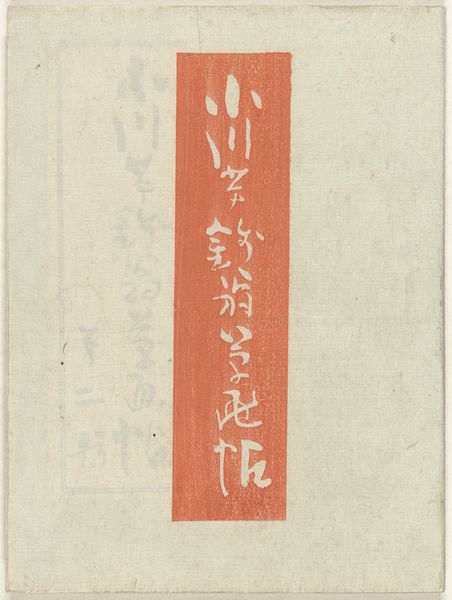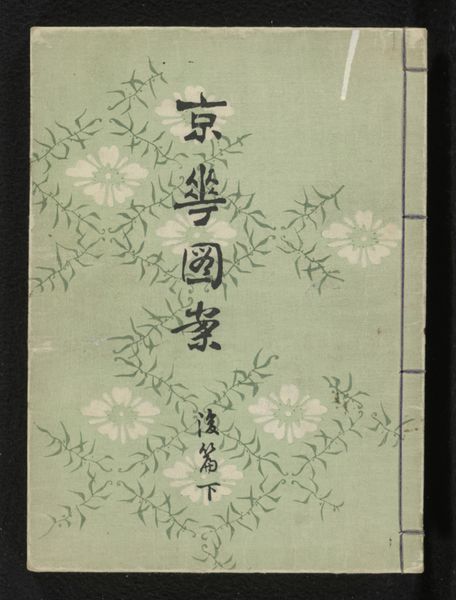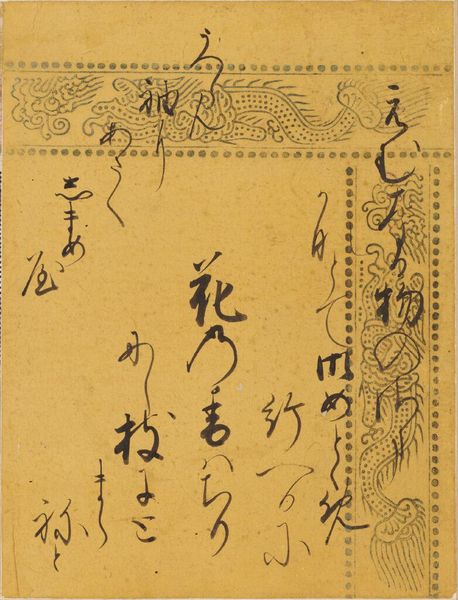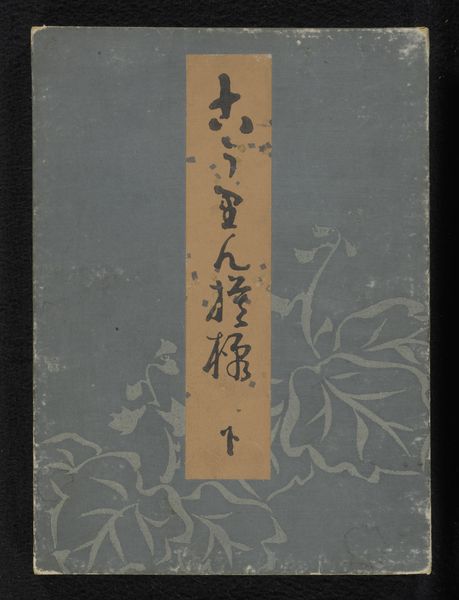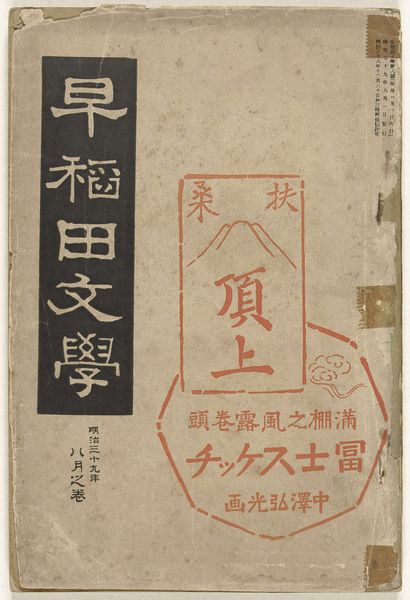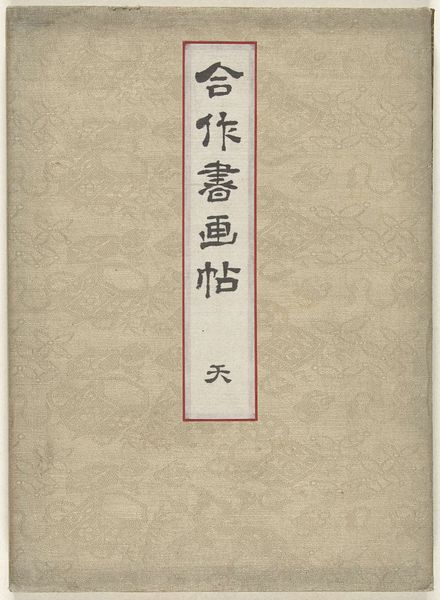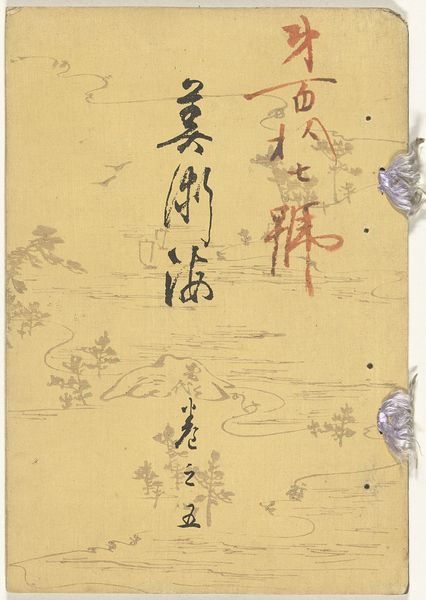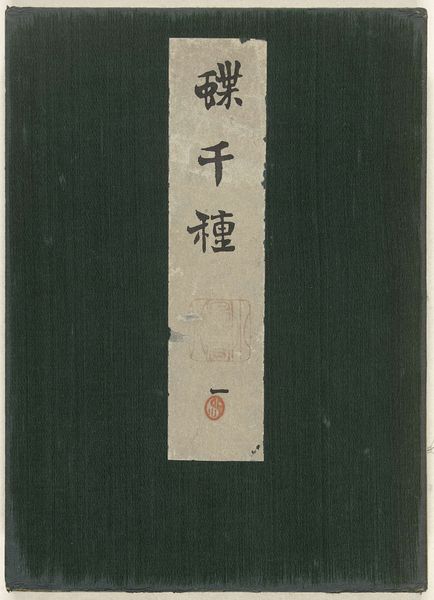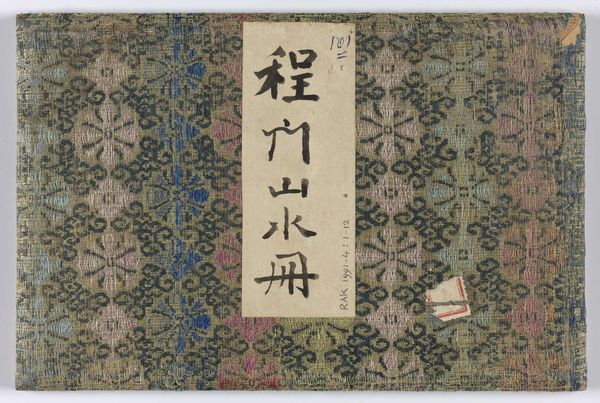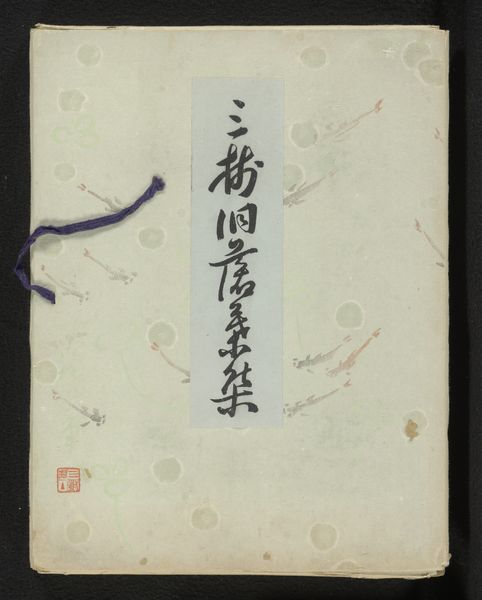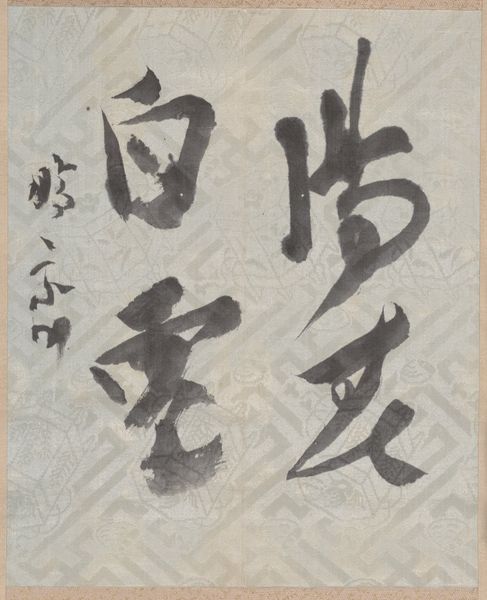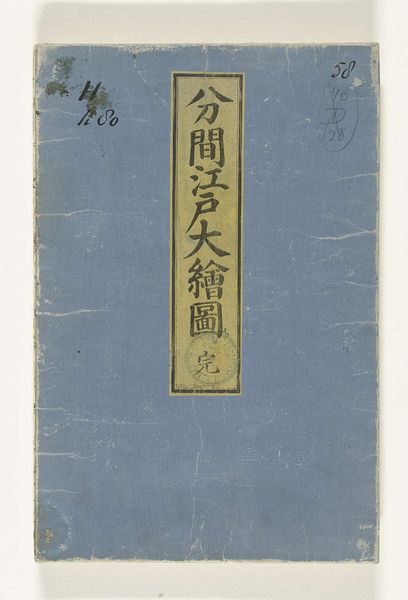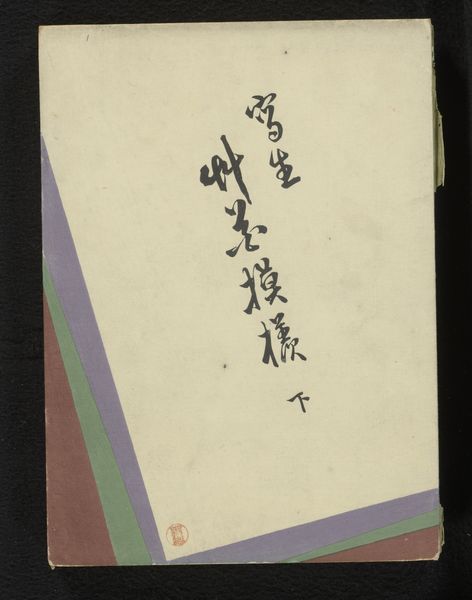
The Wrapper for the series "Eight Views of the Parlor (Zashiki hakkei)" c. 1766
0:00
0:00
silk, print, weaving, textile, paper
#
silk
# print
#
asian-art
#
weaving
#
textile
#
ukiyo-e
#
japan
#
paper
#
calligraphic
#
calligraphy
Dimensions: 35.4 × 22.8 cm (13 7/8 × 8 7/8 in.)
Copyright: Public Domain
This is the wrapper for Suzuki Harunobu's series, "Eight Views of the Parlor," made in 18th century Japan, and printed on paper. The material is key here: this isn't just any paper, but *washi*, a handmade paper unique to Japan. Its texture comes from the careful layering of plant fibers, giving it both strength and a subtle visual quality. The floral pattern you see wasn't printed on, but likely created by embedding flowers into the paper pulp itself – a highly skilled process. The bold calligraphy was then added using woodblock printing, a technique that demanded precision carving and inking. Think about the labor involved: from the cultivation of plants to the papermaking and printing, each stage required specialized skills passed down through generations. What was typically considered a humble material is here transformed into an object of beauty, elevating craft to the level of art. By attending to the qualities of *washi*, and the means of its production, we see a challenge to traditional distinctions between "high" art and craft.
Comments
No comments
Be the first to comment and join the conversation on the ultimate creative platform.
